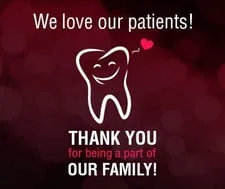 Oral cancer is one of the most common cancers today and has one of the lowest survival rates, with thousands of new cases being reported each year. Fewer than half of all people diagnosed with oral cancer are ever cured.
Oral cancer is one of the most common cancers today and has one of the lowest survival rates, with thousands of new cases being reported each year. Fewer than half of all people diagnosed with oral cancer are ever cured.
Moreover, people with many forms of cancer can develop complications—some of them chronic and painful—from their cancer treatment. These include dry mouth and overly sensitive teeth, as well as accelerated tooth decay.
If oral cancer is not treated in time, it could spread to other facial and neck tissues, leading to disfigurement and pain.
Older adults over the age of 40 (especially men) are most susceptible to developing oral cancer, but people of all ages are at risk.
Oral cancer can occur anywhere in the mouth, but the tongue appears to be the most common location. Other oral structures could include the lips, gums and other soft palate tissues in the mouth.
Warning Signs
In general, early signs of oral cancer usually occur in the form of lumps, patchy areas and lesions, or breaks, in the tissues of the mouth. In many cases, these abnormalities are not painful in the early stages, making even self-diagnosis difficult.
Here are some additional warning signs:
- Hoarseness or difficulty swallowing.
- Unusual bleeding or persistent sores in the mouth that won't heal.
- Lumps or growths in other nearby areas, such as the throat or neck.
If a tumor is found, surgery will generally be required to remove it. Some facial disfigurement could also result.
Prevention
Prevention is the key to staving off oral cancer. One of the biggest culprits is tobacco and alcohol use. Certain kinds of foods and even overexposure to the sun have also been linked to oral cancer. Some experts believe certain oral cancer risk factors are also hereditary.
A diet rich in fruits and vegetables is one of the best defenses against oral cancer. Maintaining good oral hygiene, and regular dental checkups, are highly recommended.





